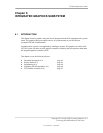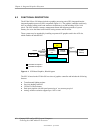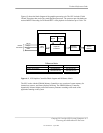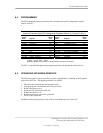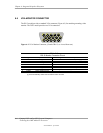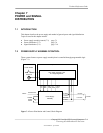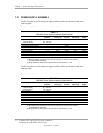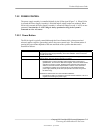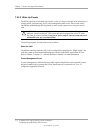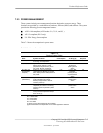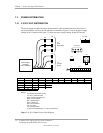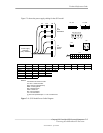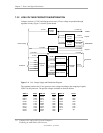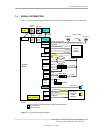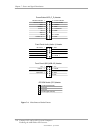
Technical Reference Guide
7.2.2 POWER CONTROL
The power supply assembly is controlled digitally by the PS On signal (Figure 7-1). When PS On
is asserted, the Power Supply Assembly is activated and all voltage outputs are produced. When
PS On is de-asserted, the Power Supply Assembly is off and all voltages (except +5 AUX) are not
generated. Note that the +5 AUX voltage is always produced as long as the system is
connected to a live AC source.
7.2.2.1 Power Button
The PS On signal is typically controlled through the Power Button which, when pressed and
released, applies a negative (grounding) pulse to the power control logic. The resultant action of
pressing the power button depends on the state and mode of the system at that time and is
described as follows:
System State Pressed Power Button Results In:
Off Negative pulse, of which the falling edge results in power control logic asserting PS
On signal to Power Supply Assembly, which then initializes. ACPI four-second
counter is not active.
On, ACPI Disabled Negative pulse, of which the falling edge causes power control logic to de-assert the
active. PS On signal. ACPI four-second counter is not
On, ACPI Enabled Pressed and Released Under Four Seconds:
Negative pulse, of which the falling edge causes power control logic to
us, generate SMI-, set a bit in the SMI source register, set a bit for button stat
and start four-second counter. Software should clear the button status bit
s within four seconds and the Suspend state is entered. If the status bit i
not cleared by software in four seconds PS On is de-asserted and the
mbly shuts down (this operation is meant as a guard if power supply asse
the OS is hung).
Pressed and Held At least Four Seconds Before Release:
nds and then released, PS On is If the button is held in for at least four seco
negated, de-activating the power supply.
Compaq D315 and hp d325 Personal Computers
Featuring the AMD Athlon XP Processor
Second Edition - April 2003
7-3



